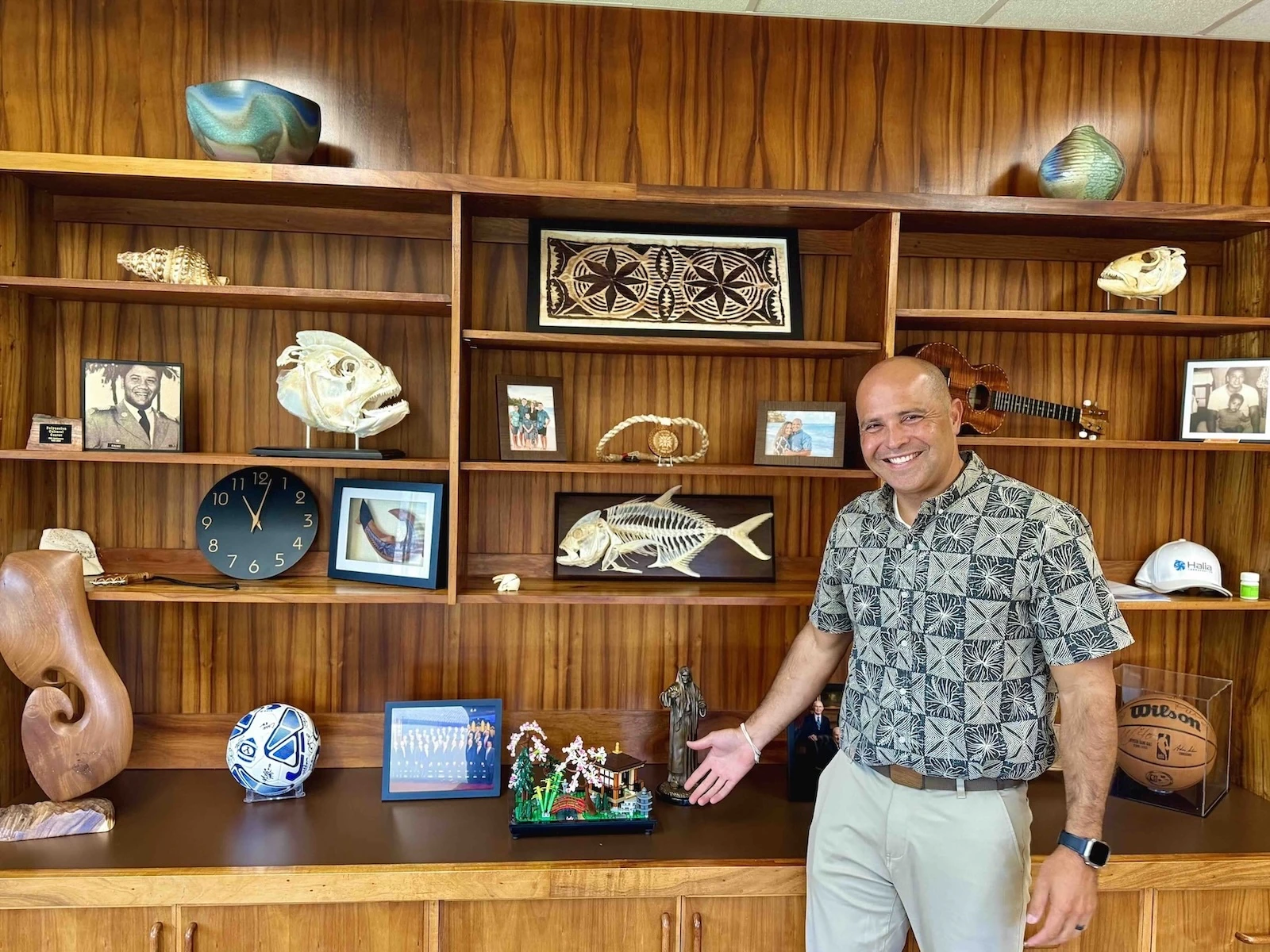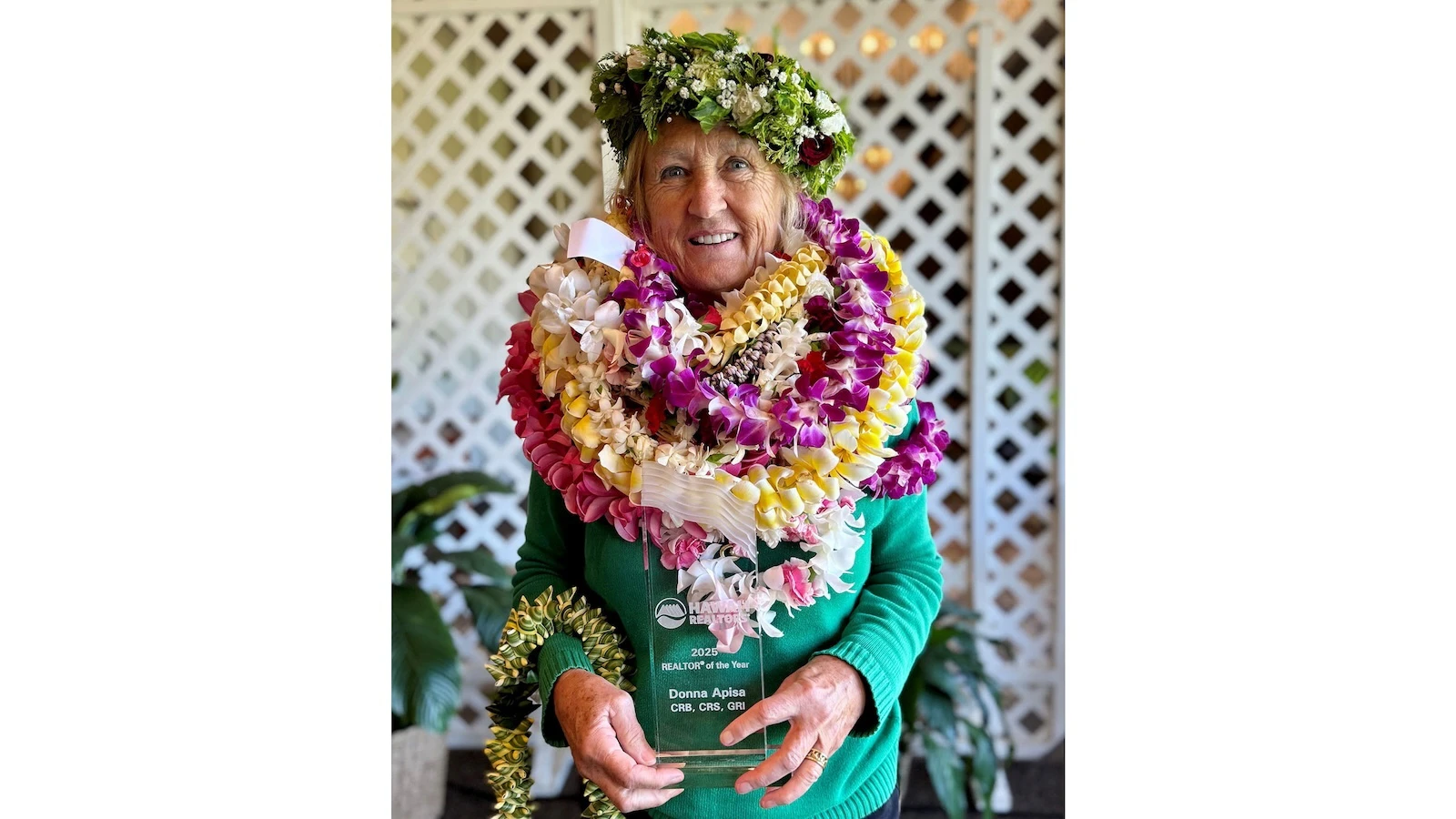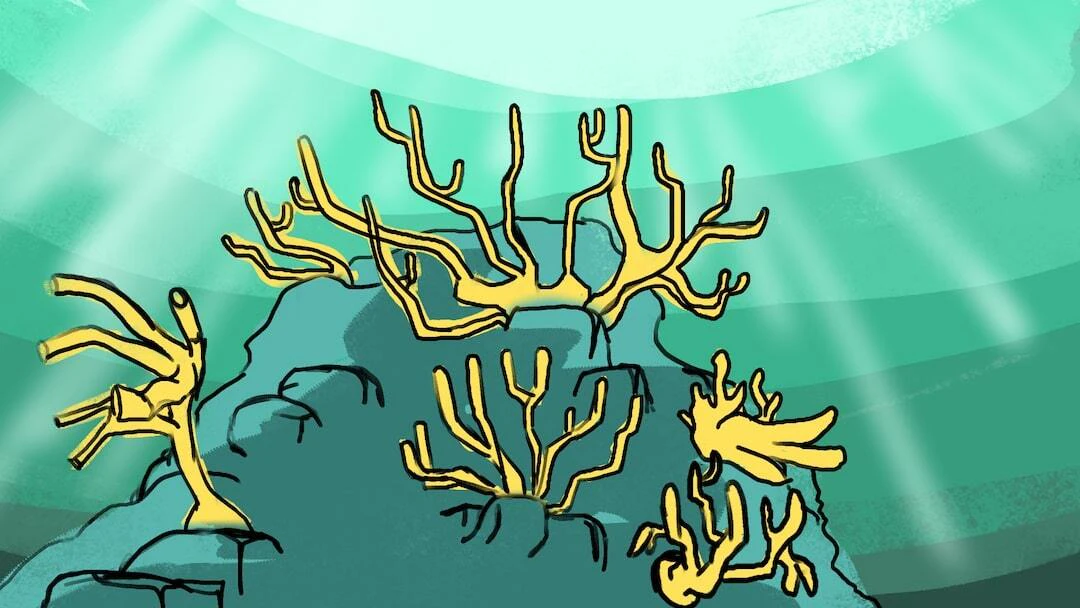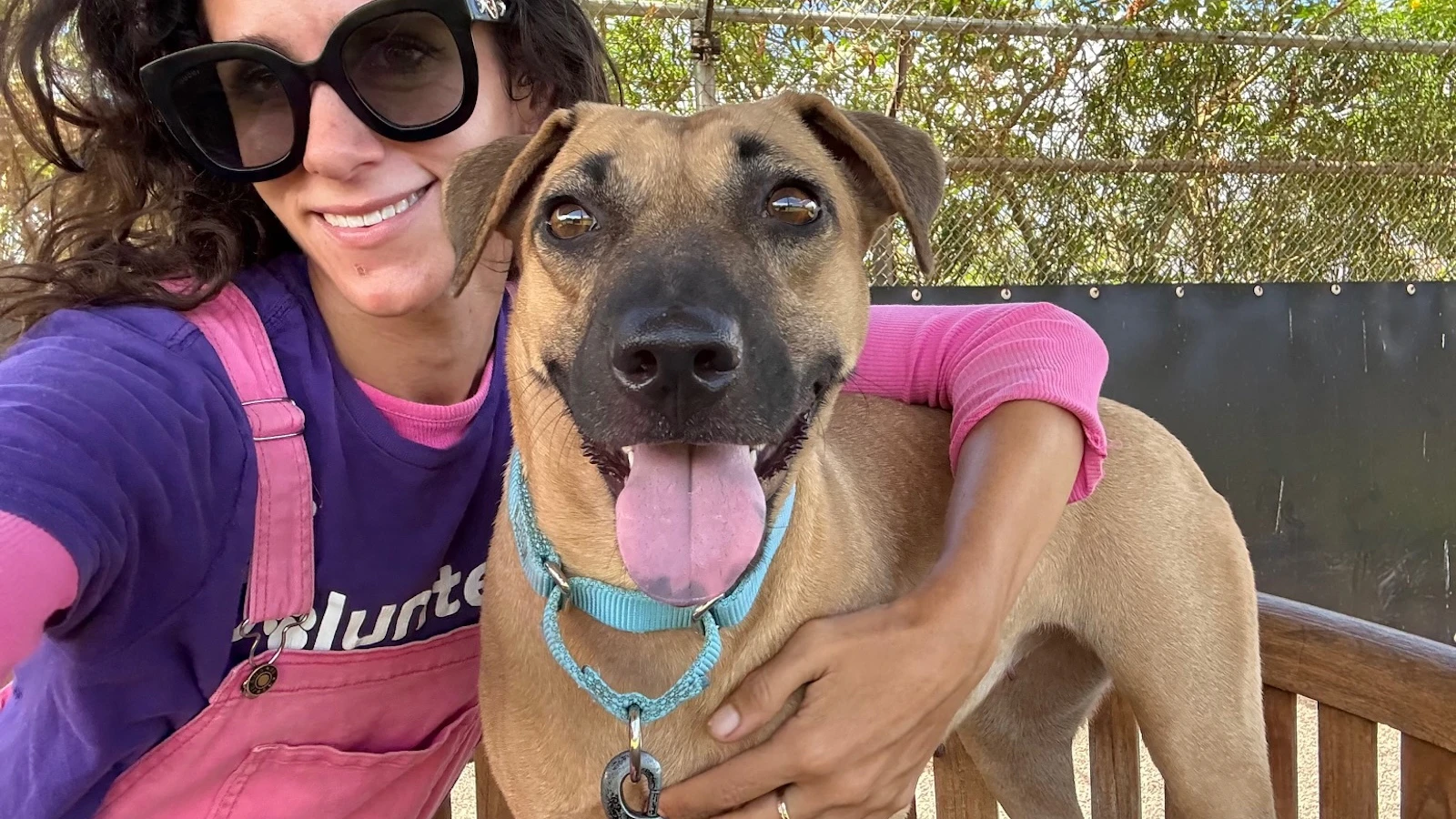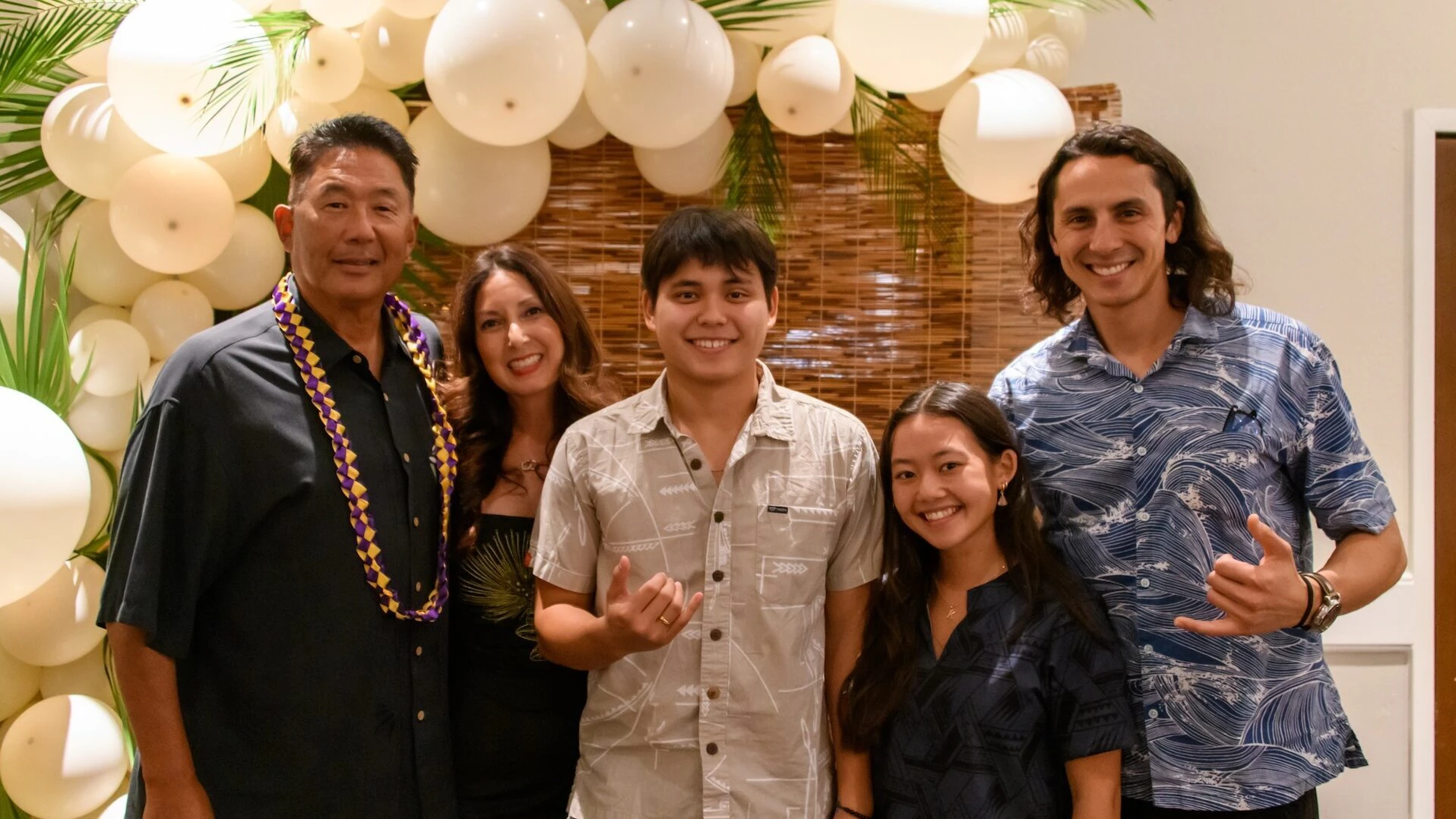John "Keoni" Sai Keong Kauwe III, who grew up between the Islands and Utah, joined Brigham Young University–Hawaiʻi as its 11th president in July of 2020.
The Molokai High School graduate told Aloha State Daily, “My family on my grandmother's side were some of the very first Hawaiian Latter-day Saints to settle in Lāʻie. So, I have a long family history here on the North Shore.”
He was invited to join BYU-Hawaiʻi by leadership from The Church of Jesus Christ of Latter-day Saints, the university’s primary sponsor for student tuition. Prior to accepting this role, Kauwe was a biology professor, chair of the Biology Department and dean of Graduate Studies for BYU in Provo, Utah.
“[My wife, Monica, and I] didn't apply for the job, but we were very excited for a several reasons: I had worked with students and faculty here for a few years, and I knew that it was a great place. I knew that the students were awesome. I, of course, had my family heritage here and had been desiring and hoping that my career would bring me back to Hawai’i,” he said. “While this situation didn’t necessarily make sense financially, from an emotional and spiritual perspective, it was clearly what we wanted to do.”
Upon arrival, Kauwe “inherited a complex situation of how to serve students remotely, how to sustain our students financially, and then how to navigate [Covid-19] itself and the regulations associated with the disease and begin to operate a university again.”
"About 700 students were stuck here. They could not return home because of travel restrictions,” he recalled. “In retrospect, it allowed us to make some changes that would have taken a lot longer if it hadn't been for that Covid reset. We became stronger partners with our community and government.”
He noted that BYU-Hawai’i reopened by Fall 2021 because “we had so much testing and vaccinations in place and were able to manage things – and our students really needed it."
Our students come from all over the world, and this is a really safe and prosperous place for them. This is a great place to build your future. And so, it was a high priority for us to have our students back on campus.”
Aloha State Daily spoke with Kauwe ahead of the first week of school. Here are a few of his priorities for the school year.
Ongoing construction and sustainability projects
The university was founded in 1955 as Church College of Hawaiʻi.
“The main buildings were completed in 1958 and those buildings from 1958 are the ones that were now looking to replace,” Kauwe said. “When building something in Lāʻie versus in Waikīkī or the Leeward Coast, the corrosive nature of the North Shore is significantly worse. Our buildings have held up really well over the past 70 years. But they were in a state of disrepair where we really had no choice but to take everything down and start over."
According to him, The BYU–Hawaiʻi Board of Trustees has invested in more than 300,000 total gross building square footage of new construction over the span of five years for five new structures, replacing The David O. McKay Classroom Building, Flag Circle, Aloha Center and McKay Faculty Building.

Other priorities include on-campus housing for single students and those with families. Kauwe said the university’s hale buildings will provide housing for 900 students when the final building is completed in January.
“Our purpose there is twofold, and we see that our students are in a better place financially and academically when they live in our home campus housing. We really want to provide that for them, but there's also a chronic shortage of housing on the North Shore,” he said. “We know that if we pull some of our students out of the housing that they're staying in out in the community, that will open up those units for community members and their families. We feel like building more housing here is a win-win for our students and for the community.”
More information about campus construction can be found here.
A major solar project is also underway.
“We have solar on top of most of our buildings and parking lots, and currently, that provides over one-third of our energy, which has worked quite well,” Kauwe said. “We are in the permitting process for our second phase, which will add significant capacity. In fact, with the support of HECO, we will be creating a micro grid that will be power the Polynesian Cultural Center, the university and the Lāʻie Hawaiʻi Temple of the Church of Jesus Christ Latter-day Saints completely from our solar grid.”
When asked what the benefits of the partnership and project are, he added, “It gives us stable power. It gives us cheaper power. But it also relieves a significant load for HECO.”
Kauwe noted that pending permit approval, he anticipates it to be completed by the end of next year.
“We are very aware of the needs and goals for the city and state, and we are doing what we can to be meaningful partners and solutions,” he continued. “We know that power production in Hawaiʻi is a challenge and if we take three massive commercial users of power off the grid, that should allow HECO to provide better services to those who remain on the grid."
Overall, he said, the upgraded facilities are “an investment in the education of Hawaiʻi's future workforce.”
Developing real-life skills through academics, community service
In addition to BYU-Hawaiʻi campus upgrades, Kauwe said leadership has refined its academic offerings.
“That's another serious need here in Hawaiʻi is to educate our workforce, to ensure that the people who were born here and raised here, have the skills and capacity to do meaningful work here and stay here.”
For example, he said, "We’ve also opened 250 spots for our work-study scholarship that prioritizes Hawaiʻi residents. Students work 19 hours per week at a job on campus or PCC, and they pay back a portion of those resources toward part of their tuition, and then we cover the rest (their tuition, their housing, their food, their health insurance). They're able to have a debt-free bachelor's degree."
Two students share their experience in the documentary "Sharing Aloha," which hit theaters today.

Students can also participate in a nationwide program, JustServe, which is a catalogue of service projects in the community. The campus has held sport tournaments and currently offers intramural sports and clubs, among other activities.
This year, BYU-Hawaiʻi’s Food Fest, celebrating different dishes and cultures from its students from around the globe, will be open to the public on Nov. 8.
Building up faith-filled leaders
The mission of BYU–Hawaiʻi is “to prepare students of Oceania and the Asian Rim to be lifelong disciples of Jesus Christ and leaders in their families, communities, chosen fields, and in building the kingdom of God.”
Kauwe said students have dedicated church congregations, where they go to “worship with other students and young adults their age."
Academically, every student must complete 14 credits of a religious education core to graduate.
“Beyond that, our faculty and staff are committed to ensuring that all of their teaching, leadership and mentoring, integrates the importance of faith in our students’ lives, or what grounds them from a moral and spiritual perspective.”
Devotionals take place on Tuesdays at 11 a.m., with a variety of speakers, and are meditated on throughout the week, he said.
ASD asked Kauwe, “What do you want students to leave BYU Hawaiʻi with?”
“Our purpose is that our students will be disciples of Jesus Christ. What that means is that they understand the teachings of Jesus Christ, and they practice them in ways that bless their own lives and the lives of others. We also have the purpose of them living and leading in Asia and the Pacific. So, we really want our students to have their hearts and their minds focused on ‘how do I build the community that brought me up?’
“For me personally, I spend a lot of time with the students. I live on campus, eat with them in the dining hall, and I see them as I'm loading my surfboards or throwing the football with my kids. I spend a lot of time just understanding who they are and what they're going through."
He said his advice to his younger self, or at least right now to his oldest son, who is 18, is: “Ask for help.”
“When I reflect on my life, on the university that I lead, and what I hope that each student will do, I look at this campus and I've got 150 amazing faculty. I've got 300-plus amazing employees. We have counseling professionals at a higher ratio than most universities in the world. We have an academic support team that's fantastic, we have extensive tutoring resources. We have our church communities, we have our student clubs, we have our student athletic activities. We have so many resources to support every aspect of our students' lives and the missing ingredient most often, is a student just recognizing it's OK to reach out to an academic advisor and say, ʻI feel like I'm drowning my classes, what can I do?’ … I think just realizing people were not alone and there are far more resources available to us than we generally take advantage of.”
“One of the important things about faith is that it does create such a powerful sense of worth and belonging. It connects people in ways where they start to feel like they can ask for help because of that shared value system. That's something, again, that we try to do the best we can to cultivate here.
Show and tell from the president
Of the items displayed in Kauwe's office, the most surprising item he pulled off the shelf was perhaps the smallest.
His late father’s PCC name tag from “1975 or something,” he said with a smile.
“And that's a picture of my dad, who passed away a couple months after I started this job, but he went to school here when it was the Church College of Hawaiʻi."
Other items included a Siapo, or tapa cloth from Samoa, a basketball signed by Golden State Warriors players, an ʻukulele, and preserved fish bones and a fish lure. "I have a hobby of doing marine and fish genomics, but I do it in rigorous scientific way," he said. "I've published several papers in that field, and these are some of the fish that I have caught for my science and then also preserved.
“I am a biologist by training and Ph.D. human geneticist. My entire career up until now was therapeutic development and Alzheimer's disease. That hat is the pharmaceutical company that I co-founded and that I'm still on the board of. It's called Halia Therapeutics. Halia is the Hawaiian word for fond memories. And so, it's our goal to preserve memory through our therapeutics. That bottle is an experimental drug that's currently in human trials that I helped invent.
Last, is a LEGO set of a Japanese garden, with Grogu (from the Star Wars Disney+ original television series "The Mandalorian") as its caretaker.
“I served a mission for the church in Japan and my kids got me that LEGO set and told me I had to keep it in my office.”
For more information about the university, visit byuh.edu.
For the latest news of Hawai‘i, sign up here for our free Daily Edition newsletter.
Kelsey Kukaua Medeiros can be reached at kelsey@alohastatedaily.com.

